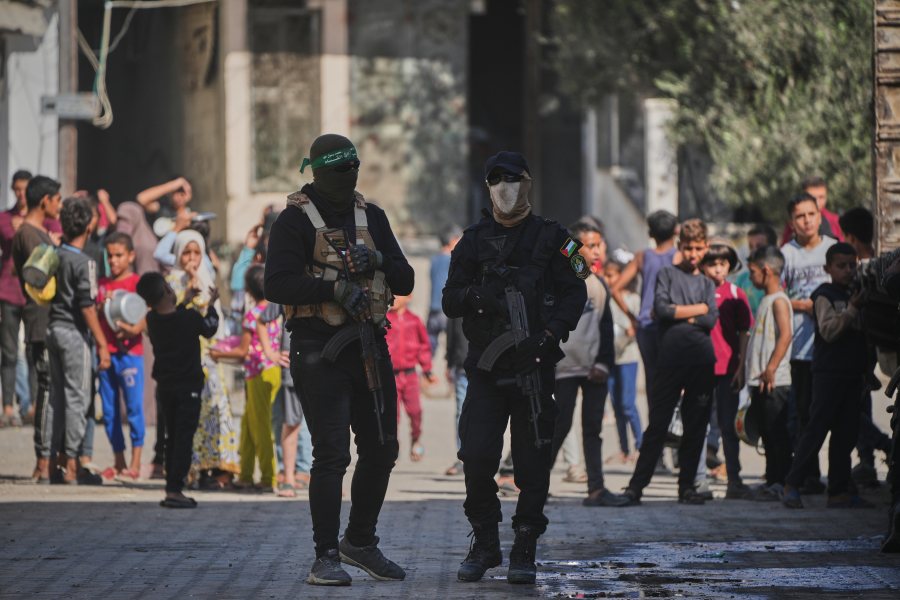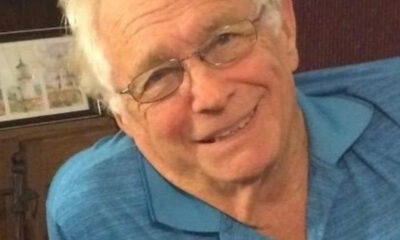World
Slow Return of Hostage Bodies Complicates Gaza Ceasefire

The release of a body by Hamas on Monday brought a glimmer of hope to 13 families in Israel, who had been anxiously awaiting the return of their loved ones’ remains. However, the announcement that only partial remains were provided has deepened the heartbreak for many families still searching for closure. The situation poses a significant challenge to the fragile ceasefire that began on October 10, 2023, further complicating the already strained dynamics of the ongoing Israel-Hamas conflict.
Families are grappling with a painful waiting game as they seek to lay their relatives to rest. The emotional toll is heightened by the cultural importance placed on retrieving bodies for burial in Israel. Orna Neutra, mother of Omer Neutra, an Israeli-American soldier killed during the Hamas-led attack on October 7, expressed her longing for closure: “This is my son. We need that concreteness,” she said during a gathering in Tel Aviv. The Neutra family, like many others, has been navigating the agony of uncertainty since Omer was taken by Hamas.
The ceasefire, brokered by the United States, has come under renewed pressure following Israeli Prime Minister Benjamin Netanyahu‘s call for intensified military action in Gaza. In response, Hamas announced a delay in returning what they claim to be another body of a hostage. Under the terms of the ceasefire, Hamas released 20 living hostages earlier this month in exchange for nearly 2,000 Palestinian prisoners. Alongside this, they returned the remains of 15 hostages, but the slow pace of this process is causing mounting frustration.
Hamas has stated that it struggles to retrieve all remains, attributing the difficulties to bodies being buried under the rubble left by Israel’s extensive military operations over the past two years. As tensions rise, Israel has threatened to resume military action or restrict humanitarian aid if all remains are not returned promptly. In a recent development, Hamas indicated that it has expanded its search for bodies into new areas of Gaza, with assistance from a team of experts from Egypt.
The situation is equally dire for Palestinian families in Gaza. Many are attempting to identify the remains returned by Israel, amid reports that thousands remain missing. The Gaza Health Ministry has noted that of the 195 bodies released by Israel, only 75 have been positively identified. The lack of identification and the refusal to allow DNA testing complicates the grieving process for many families.
Omer Neutra, who had moved from Long Island, New York, to serve in the Israeli military, was reported missing for 14 months before his family received confirmation of his death. His parents made numerous trips to Washington to advocate for their son’s return and were active in protests both in the United States and Israel. The emotional strain of waiting for confirmation of Omer’s fate was compounded by the realization that he had been killed, a fact based on intelligence rather than forensic evidence.
The return of hostages, both living and deceased, has elicited complex emotions. Ronen Neutra, Omer’s father, expressed mixed feelings upon witnessing the return of living hostages, reflecting on the Israeli sentiment that acknowledges both joy and sorrow simultaneously. “It’s miraculous that all of the living hostages were released in a single day,” he remarked, yet the absence of their son loomed large.
Dr. Einat Yehene, head of rehabilitation for the Hostages Families Forum, underscored the importance of physical proximity to the remains for families that have received their loved ones back. She emphasized the need for families to engage with the remains, despite the often fragmented nature of what has been returned. “It’s very devastating,” she noted, highlighting the unique grief experienced by families who have endured prolonged uncertainty.
In parallel, Palestinian families face similar challenges in identifying the remains returned by Israel. The ceasefire agreement stipulates that Israel should return 15 dead Palestinians for each deceased hostage. However, the lack of identification for these bodies has left families struggling to find closure. Many bodies appear to belong to fighters or victims of the October 7 attack and the subsequent military actions, complicating the grieving process for those left behind.
Both Judaism and Islam emphasize the necessity of immediate burial after death, which adds to the urgency felt by families awaiting the return of their loved ones. In Jewish tradition, the imperative to bury bodies without delay is rooted in religious texts, while Islamic practices similarly call for prompt burial. The ongoing struggle for remains, including those of renowned figures such as Ron Arad and Hadar Goldin, underscores the deep cultural and emotional significance of this issue within Israeli society.
Ronen Neutra articulated a sentiment that resonates deeply within Israeli culture: “We don’t leave anybody behind.” This ethos reflects the close-knit nature of Israeli society, where military service is mandatory and the respect for the deceased remains paramount. As families continue to navigate the painful uncertainty of the return of remains, the broader implications for the ceasefire and the ongoing conflict remain entwined with their personal tragedies.
-

 Science4 weeks ago
Science4 weeks agoALMA Discovers Companion Orbiting Giant Red Star π 1 Gruis
-

 Politics2 months ago
Politics2 months agoSEVENTEEN’s Mingyu Faces Backlash Over Alcohol Incident at Concert
-

 Top Stories2 months ago
Top Stories2 months agoNew ‘Star Trek: Voyager’ Game Demo Released, Players Test Limits
-

 World2 months ago
World2 months agoGlobal Air Forces Ranked by Annual Defense Budgets in 2025
-

 World2 months ago
World2 months agoElectrification Challenges Demand Advanced Multiphysics Modeling
-

 World2 months ago
World2 months agoMass Production of F-35 Fighter Jet Drives Down Costs
-

 Science2 months ago
Science2 months agoTime Crystals Revolutionize Quantum Computing Potential
-

 Business2 months ago
Business2 months agoGold Investment Surge: Top Mutual Funds and ETF Alternatives
-

 Top Stories2 months ago
Top Stories2 months agoDirecTV to Launch AI-Driven Ads with User Likenesses in 2026
-

 Entertainment2 months ago
Entertainment2 months agoFreeport Art Gallery Transforms Waste into Creative Masterpieces
-

 Health2 months ago
Health2 months agoGavin Newsom Critiques Trump’s Health and National Guard Plans
-

 Science2 months ago
Science2 months agoRemembering David E. Brest: A Life Dedicated to Nature and Family









